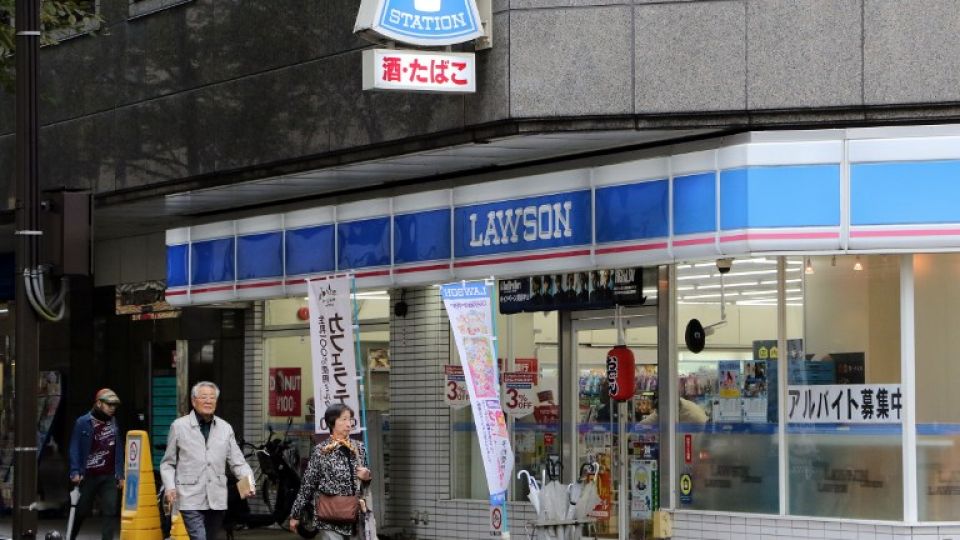June 25, 2018
Japan-affiliated convenience store chains are making an aggressive push into the Chinese market, with three major chains now having about 5,500 stores in China.
This is 1.6 times the number operated in China by these Japan-affiliated chains just over two years ago, and gives them an about 5 percent share of the market.
Going forward, it appears that they will need to differentiate themselves further from local chains, which lead in areas such as cashless payments.
Lawson Inc. on June 7 opened its 1,000th store in Shanghai and surrounding areas. The company has about 1,600 stores throughout China.
“The Shanghai area is home to about 200 million people. There’s room for 100,000 convenience stores. In the future, we’re aiming to have 20,000 stores,” Lawson President Sadanobu Takemasu said.
According to a Chinese industry association, the number of convenience stores in the country grew 13 percent in 2017 from the previous year to about 106,000 stores, which includes chains associated with gas stations. Sales were up 23 percent to 190.5 billion yuan (about ¥3.2 trillion).
FamilyMart Co. had about 2,300 stores as of the end of April, and Seven-Eleven Japan Co. had about 1,640 stores as of the end of March, bringing the total for the three major chains to about 5,500 stores. These chains are increasing their presence on the back of such strengths as their bento box meals and so-called own-brand products.
They are also expanding their ties with local retailers. Lawson is working with local department store Nanjing Central Emporium in Nanjing, Jiangsu Province. Together, they are seeking to build on the brand strength of Japan-affiliated convenience stores to create new sources of revenue. They plan to open more than 100 stores this year.
The biggest challenge in the Chinese market is a labor shortage — labor costs rose 12 percent in 2017 from the previous year, according to an industry association.
A series of unmanned convenience stores have opened since 2016 to cope with this, but this boom has slowed as the stores have not caught on with consumers due to a poor selection of products and other factors.
Lawson intends to cut costs through such measures as the introduction of self-service cash registers, but Takemasu said, “I believe it’s very unlikely we will fully automate stores,” citing issues involving delivery and in-store cooking.


